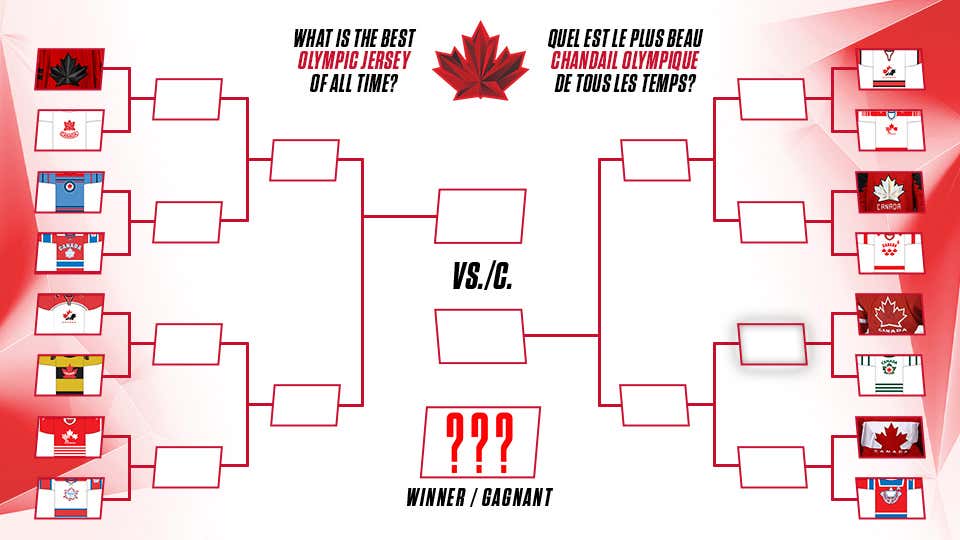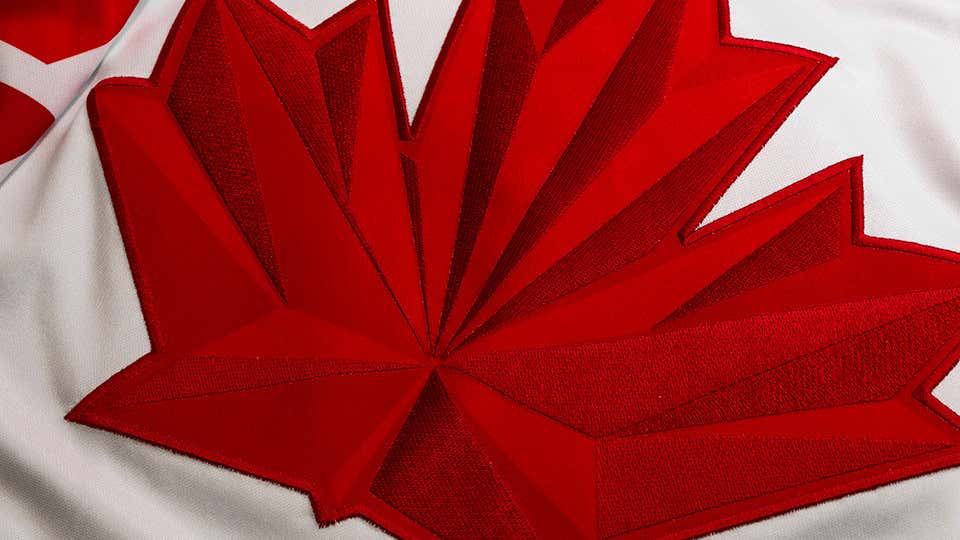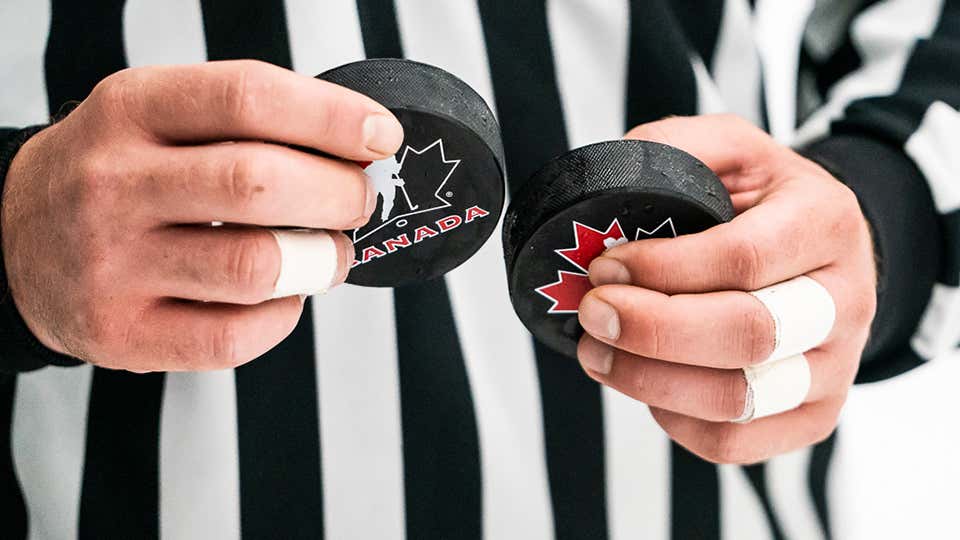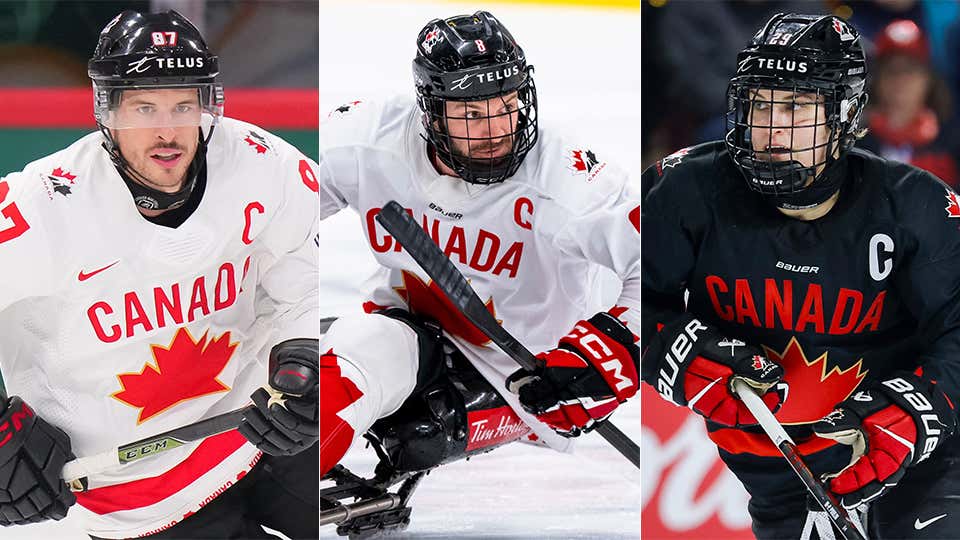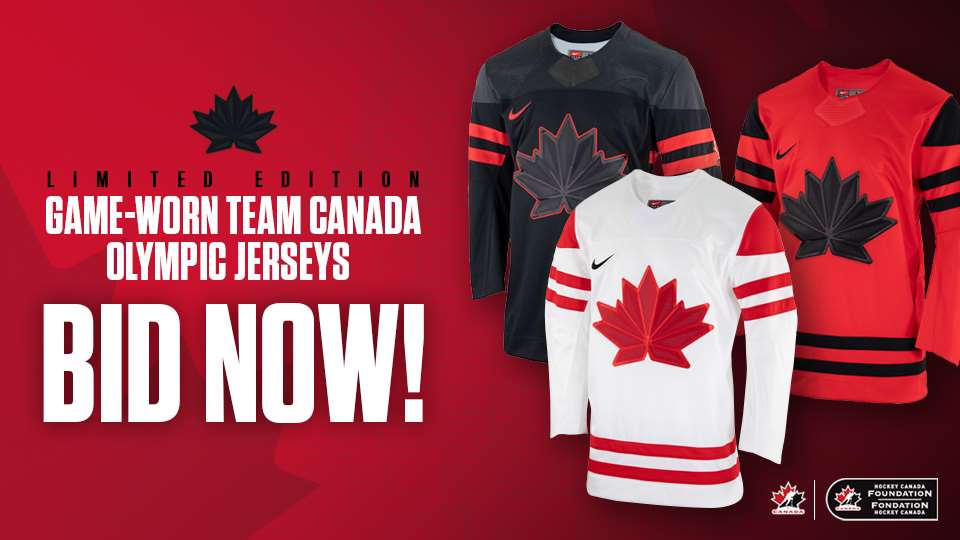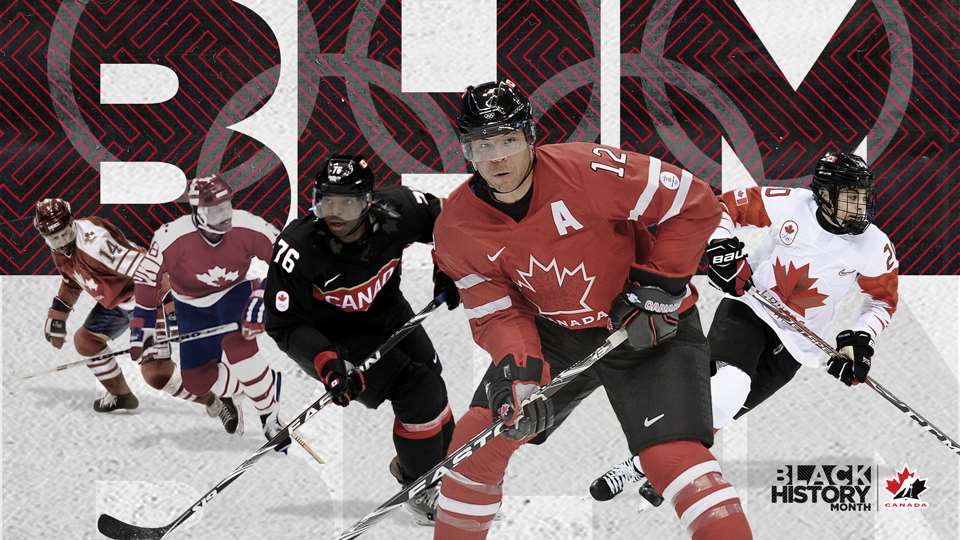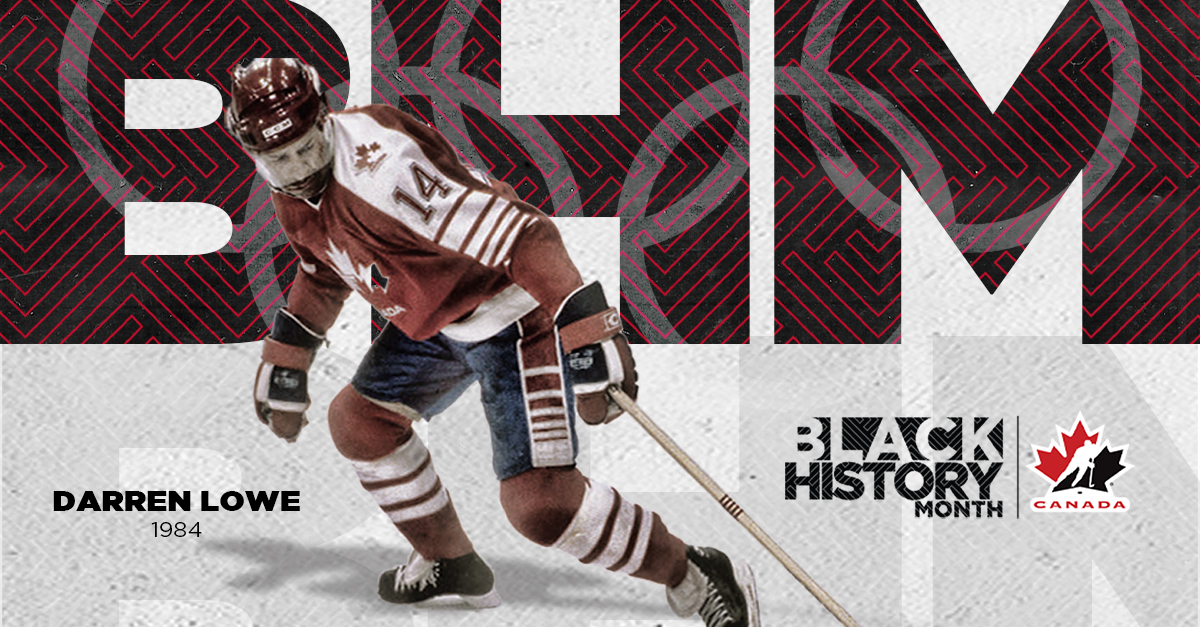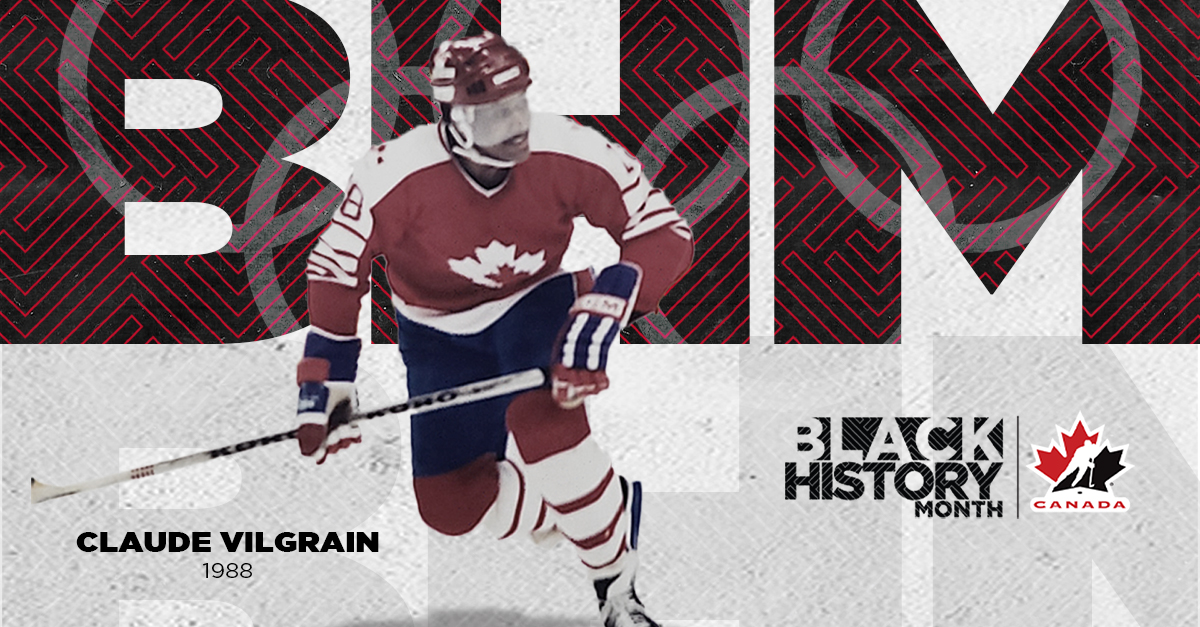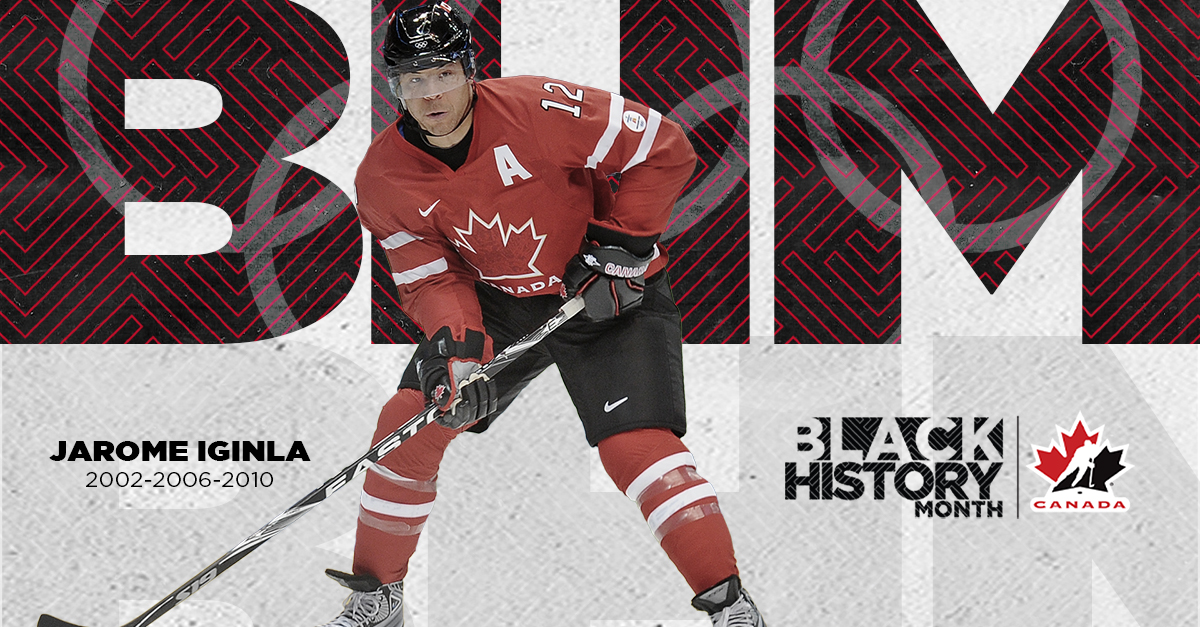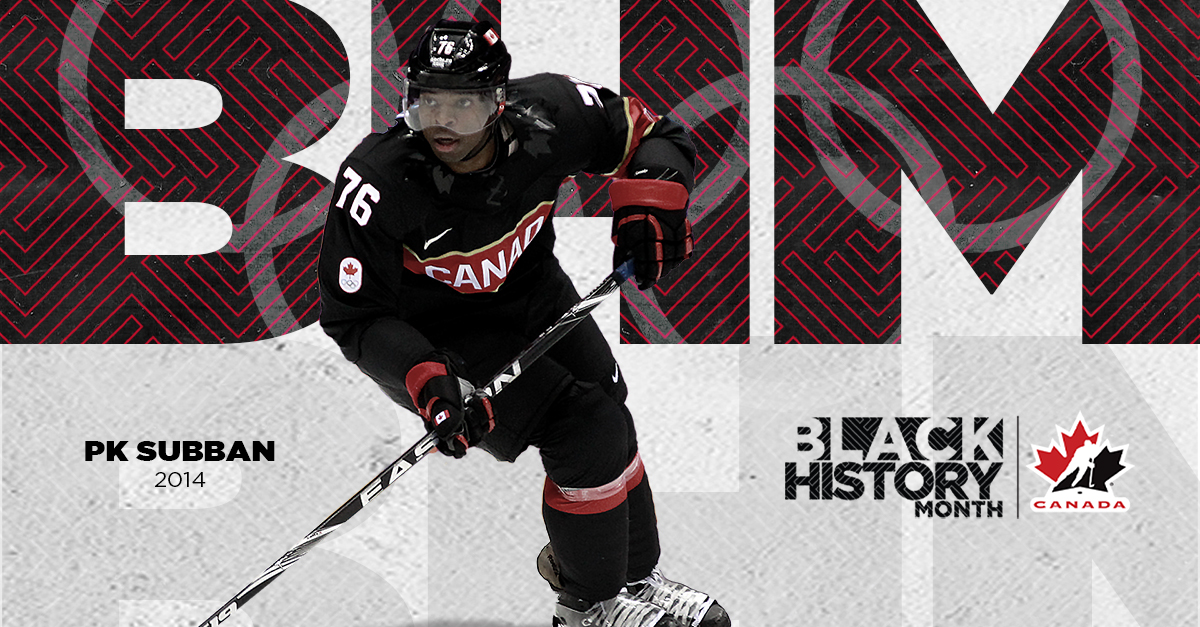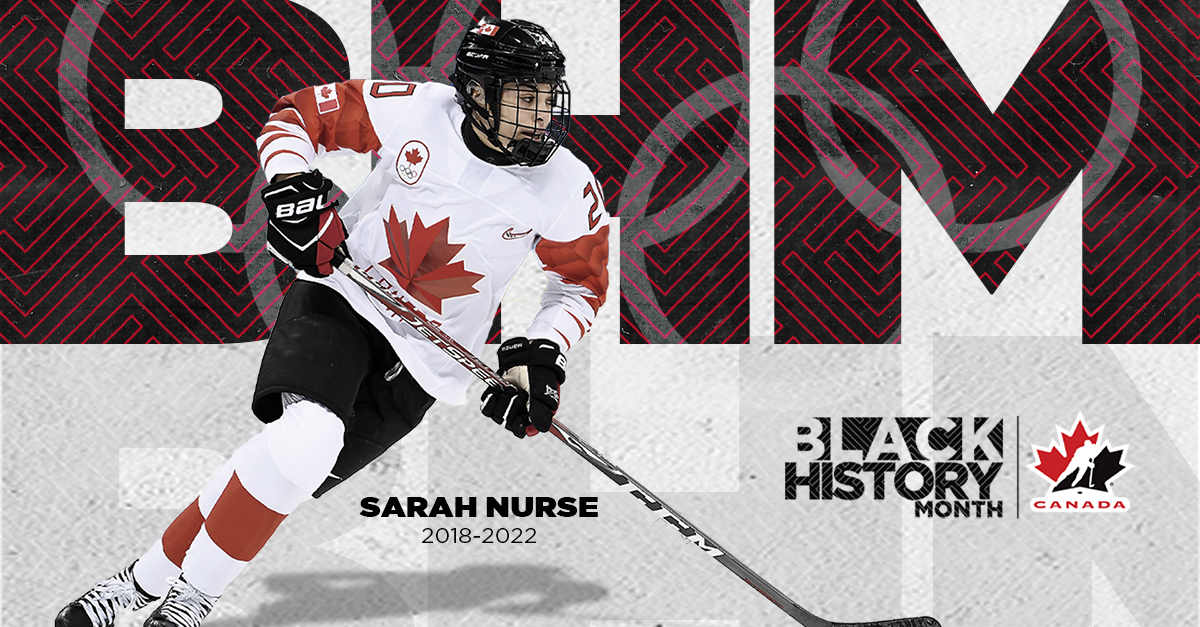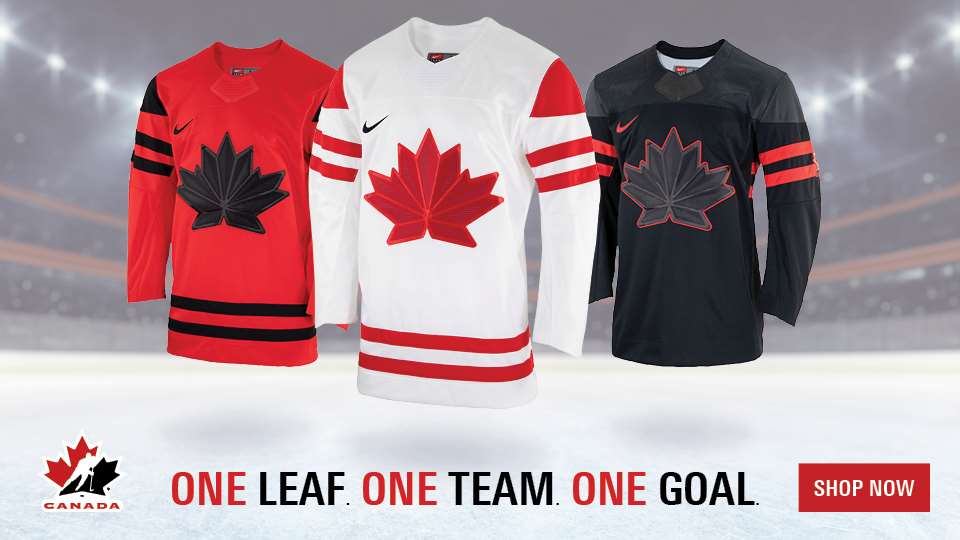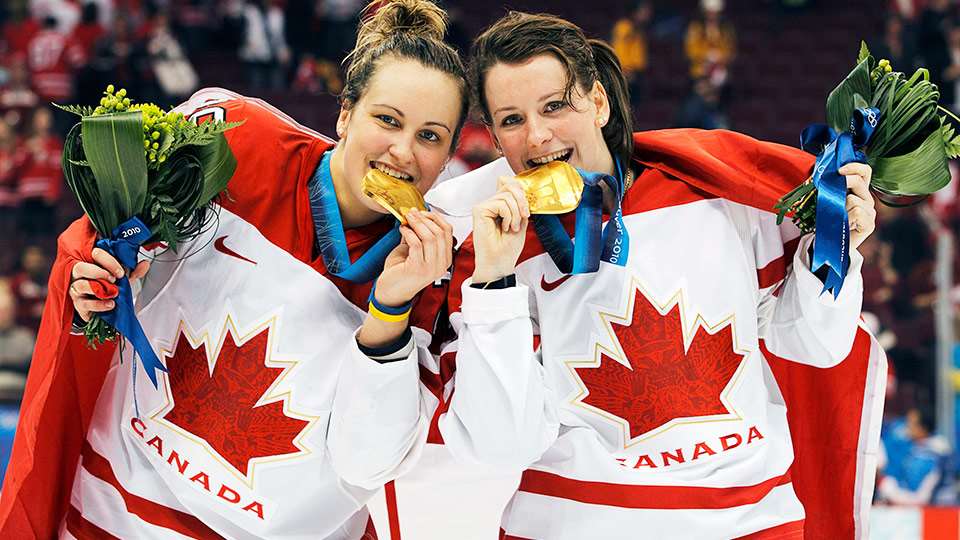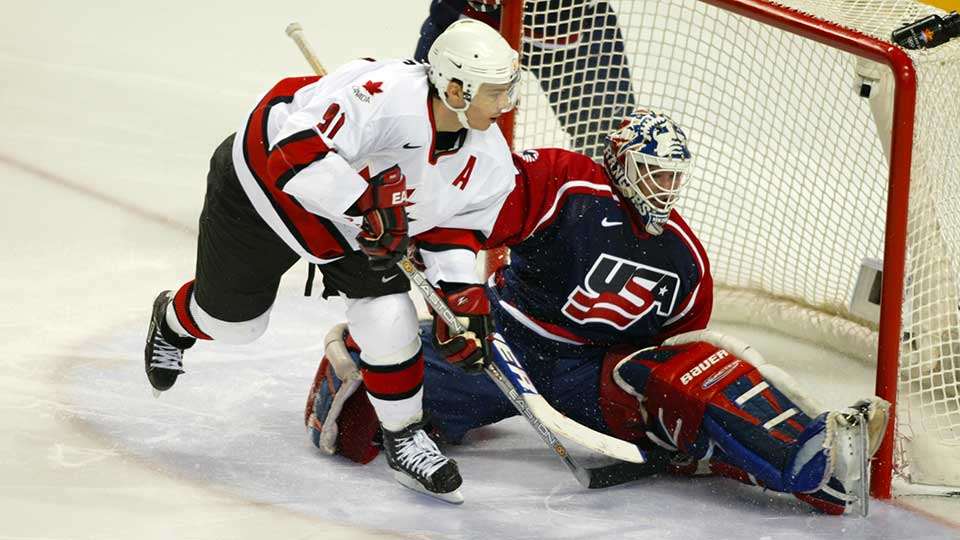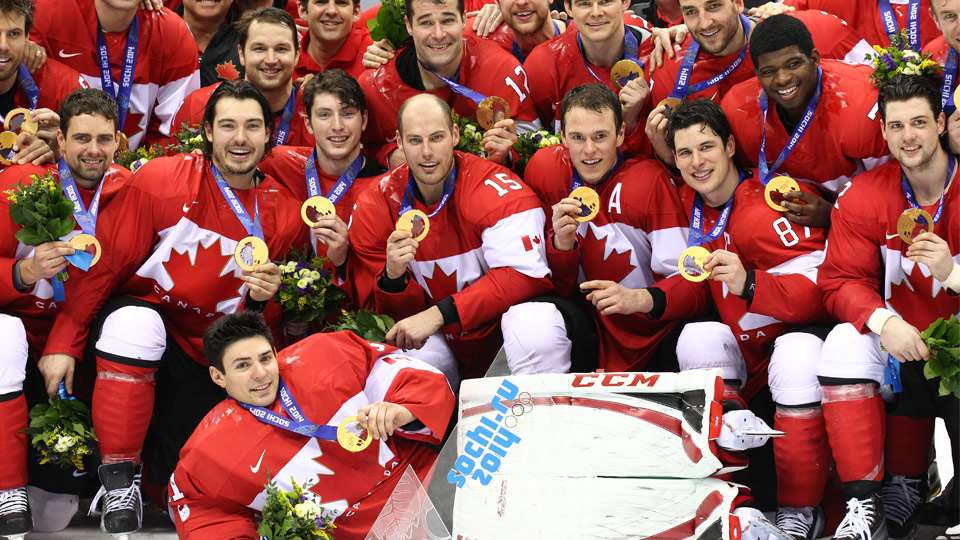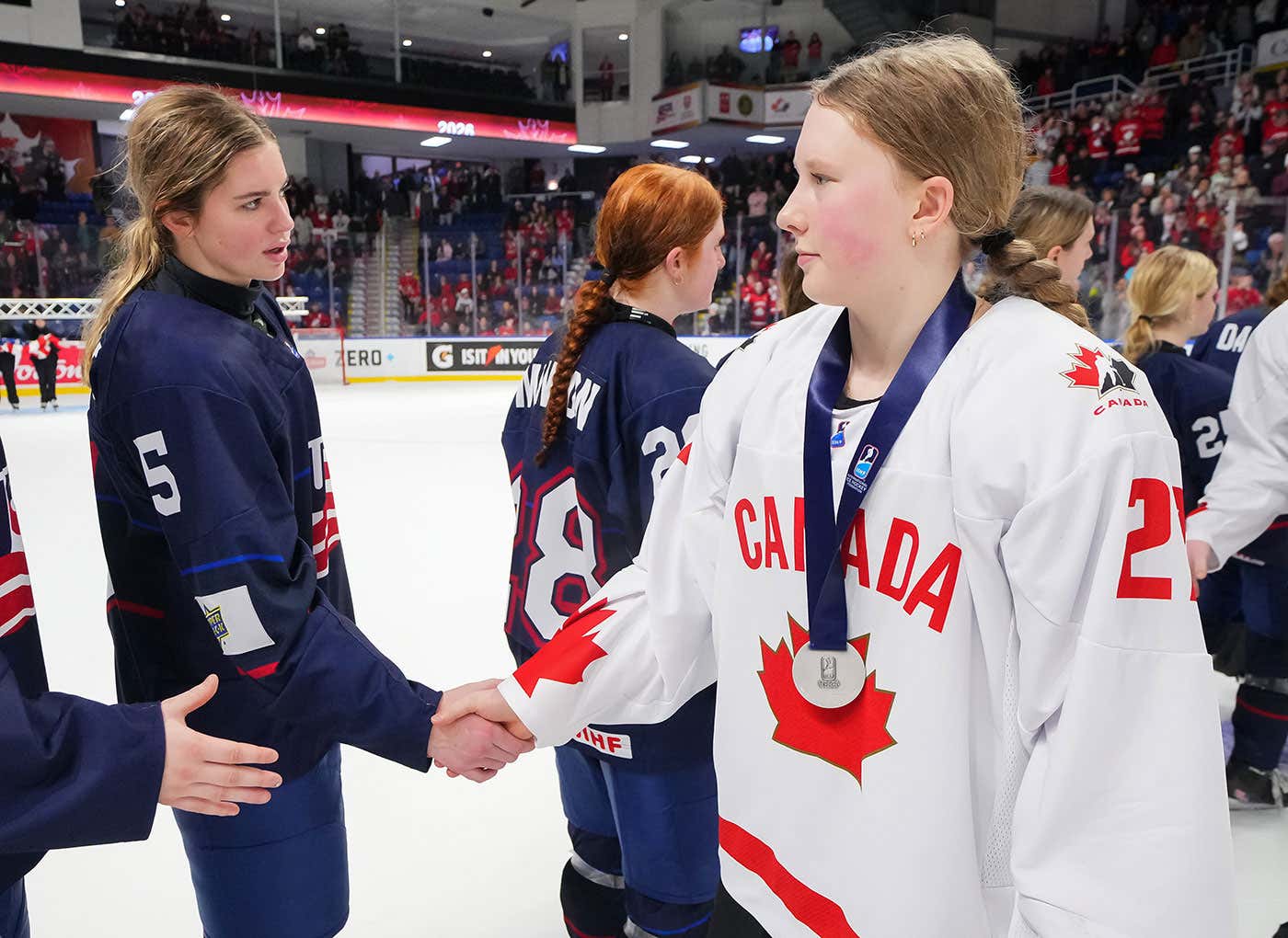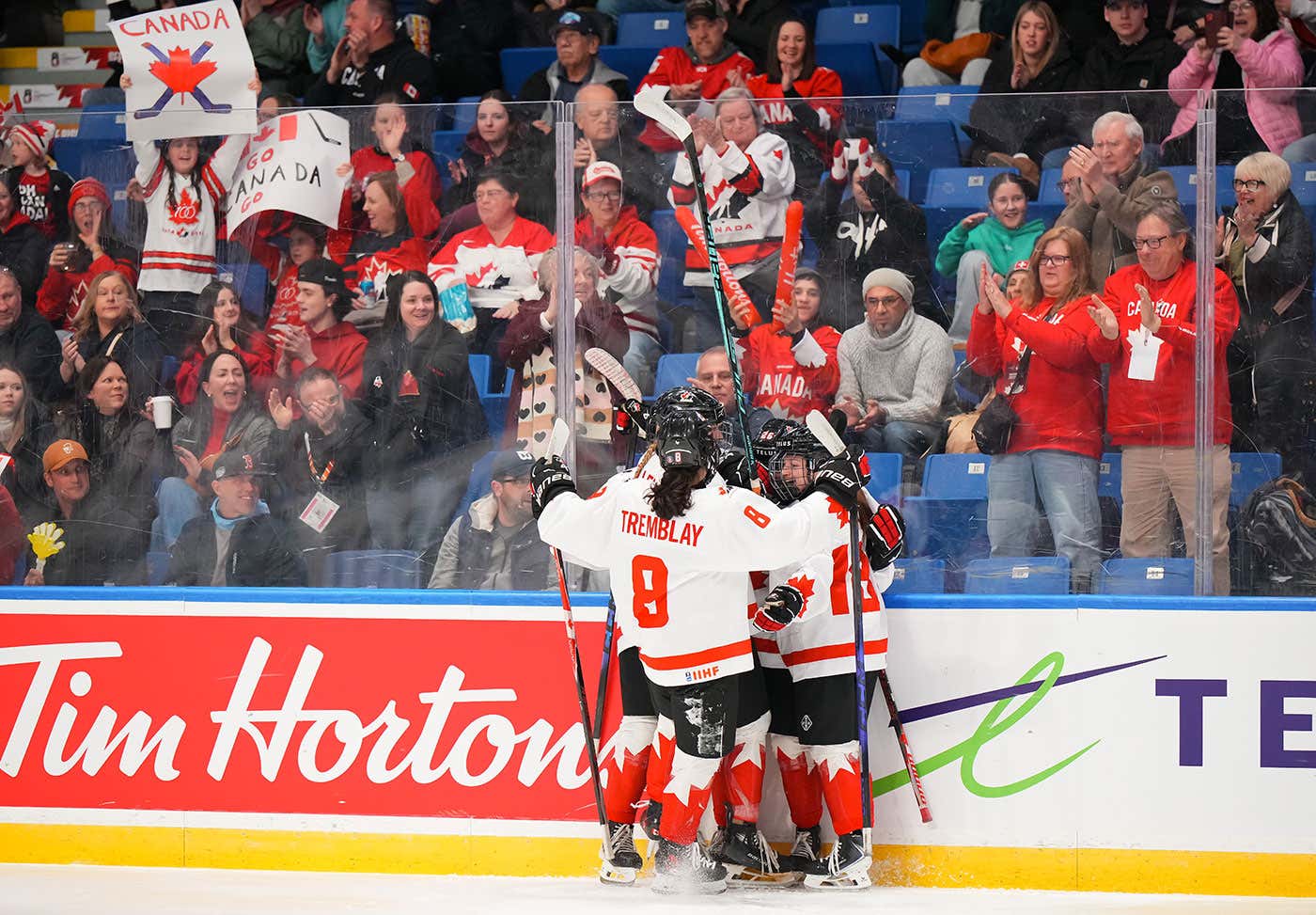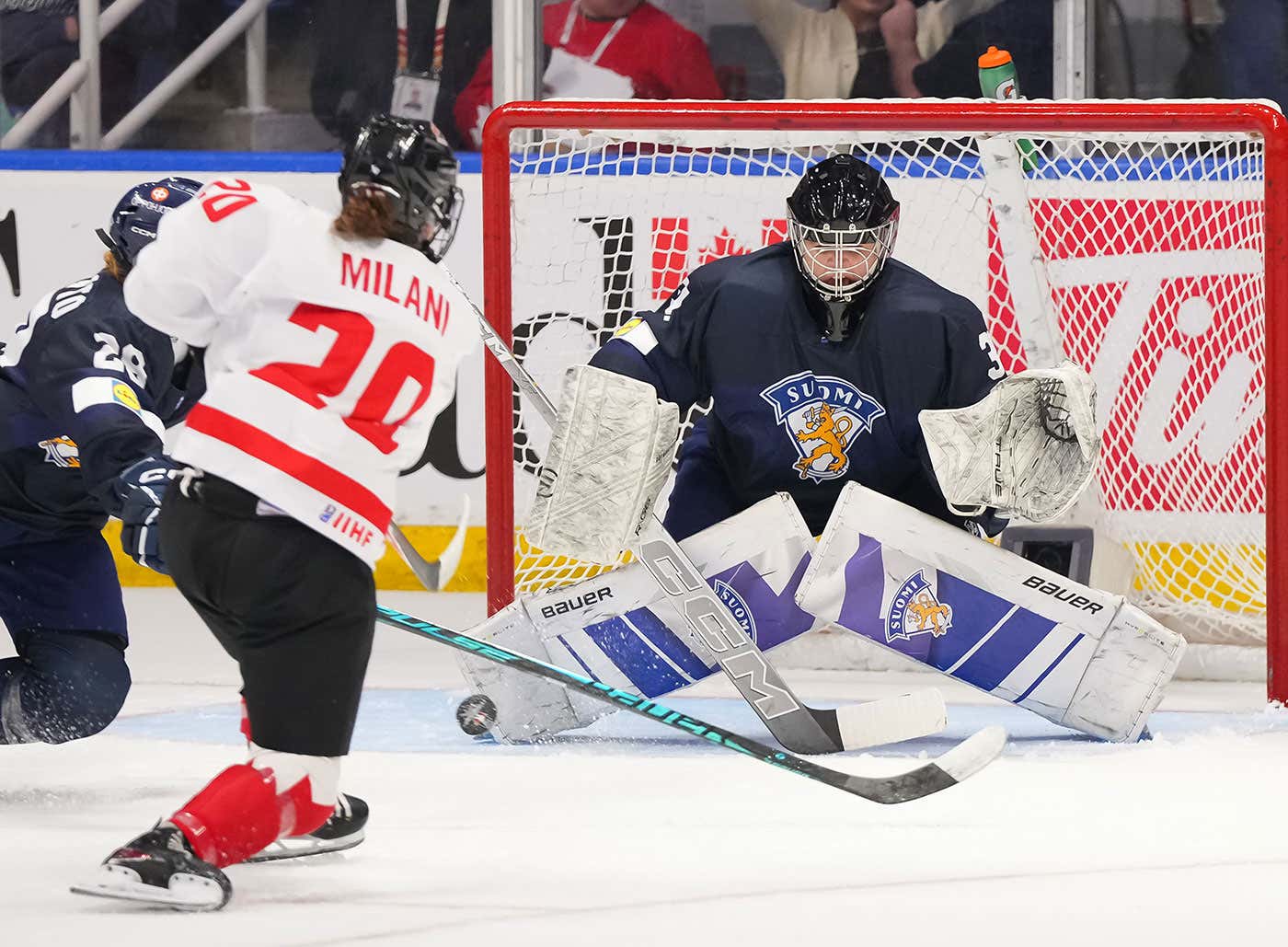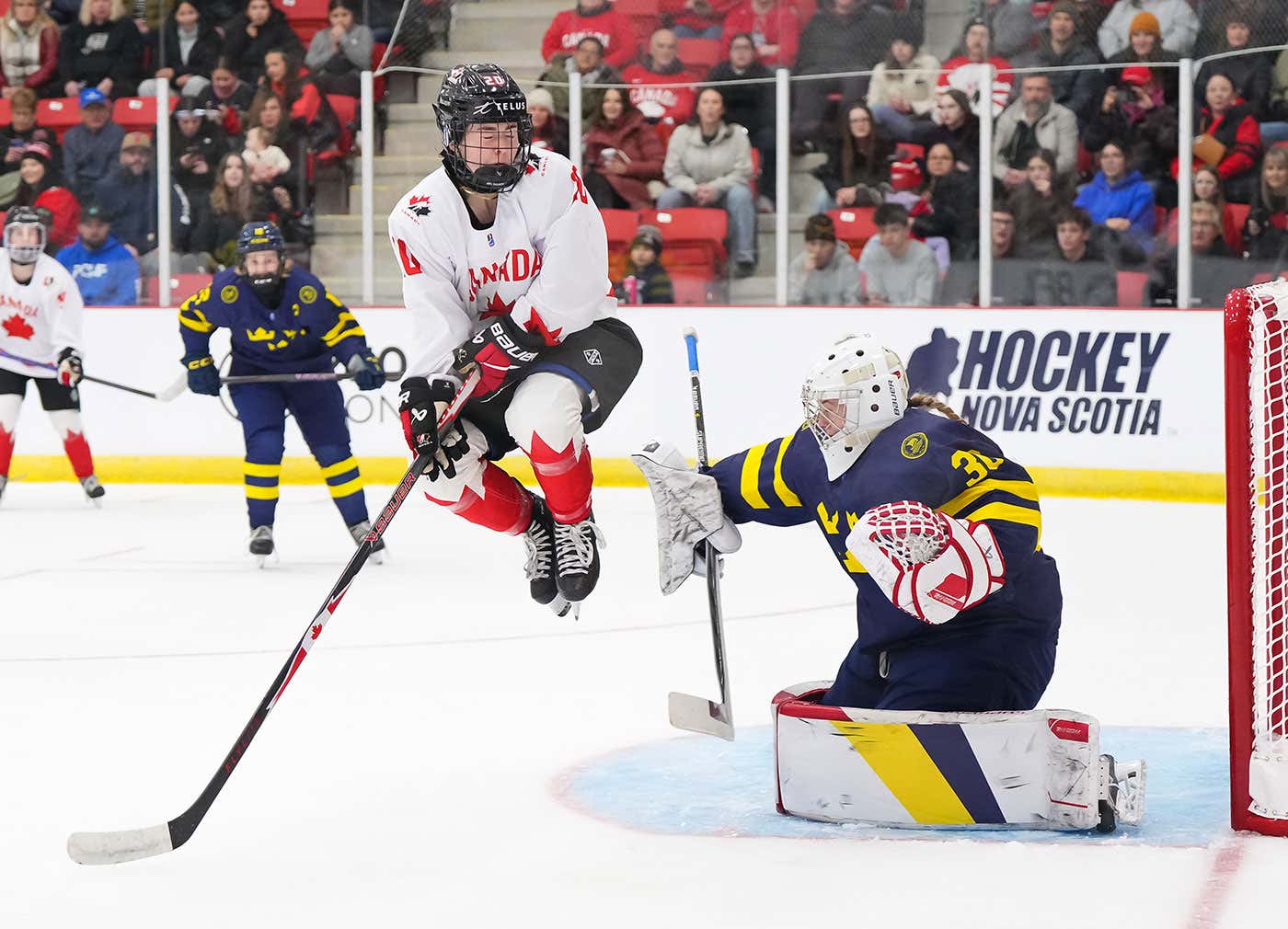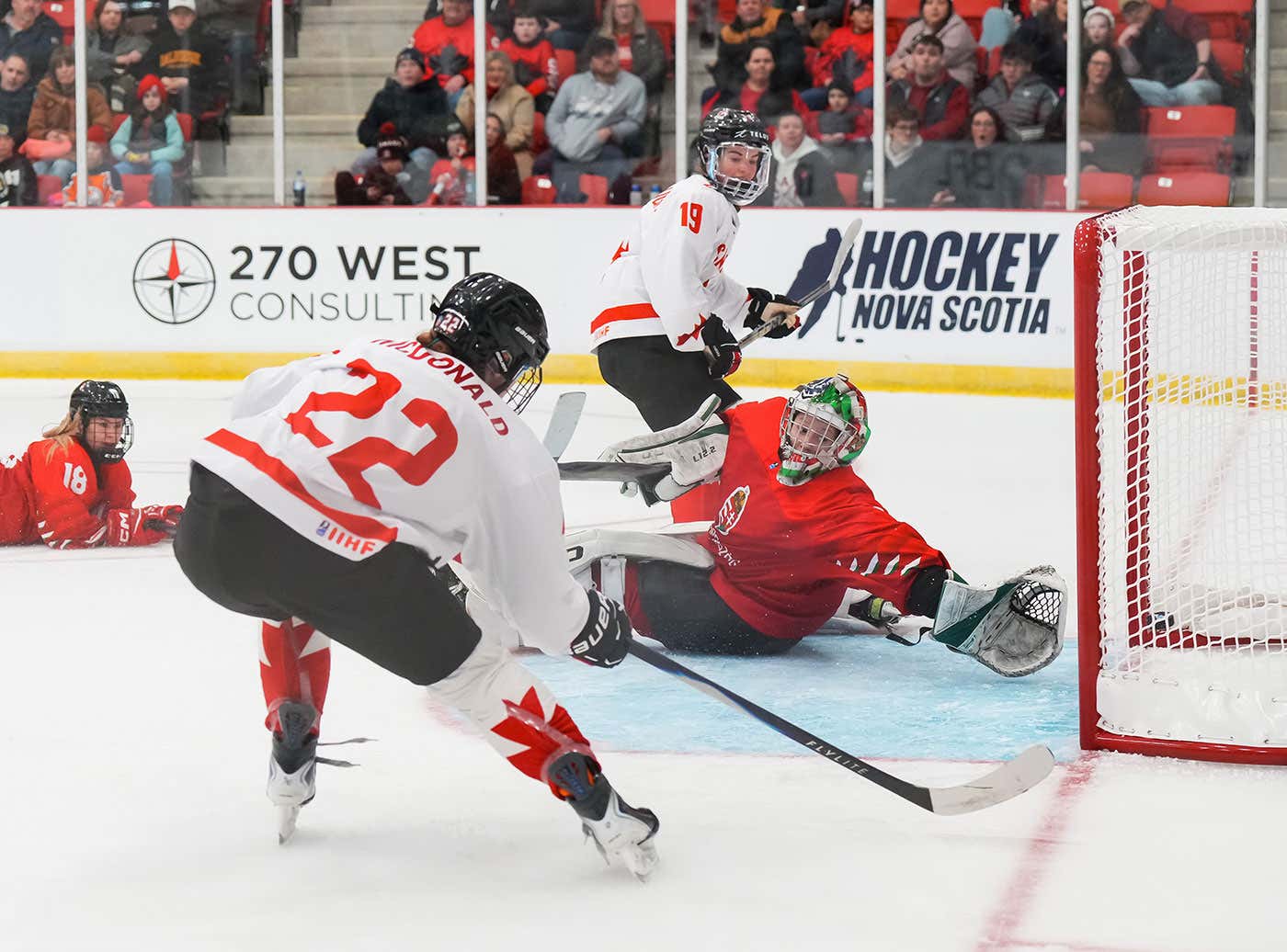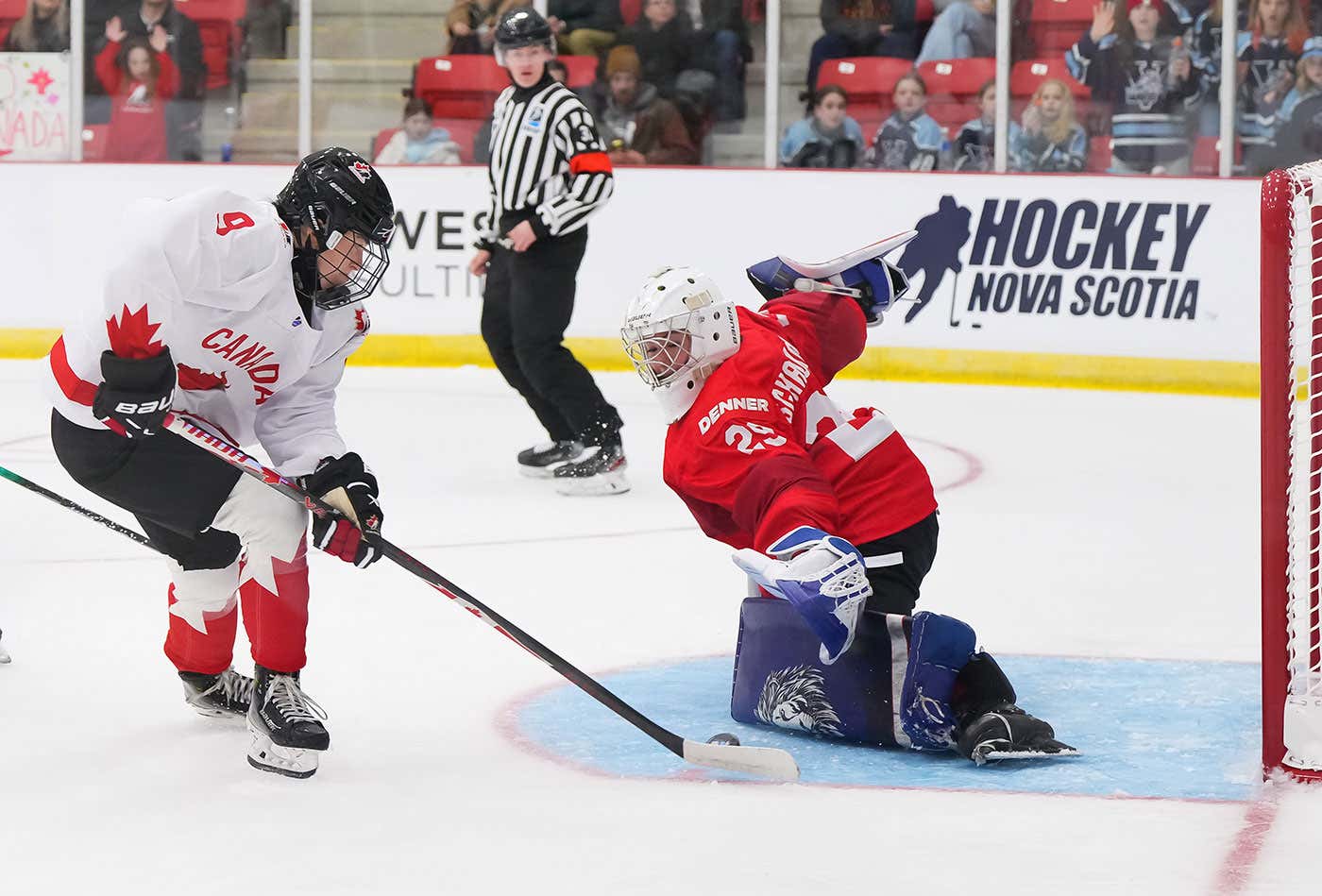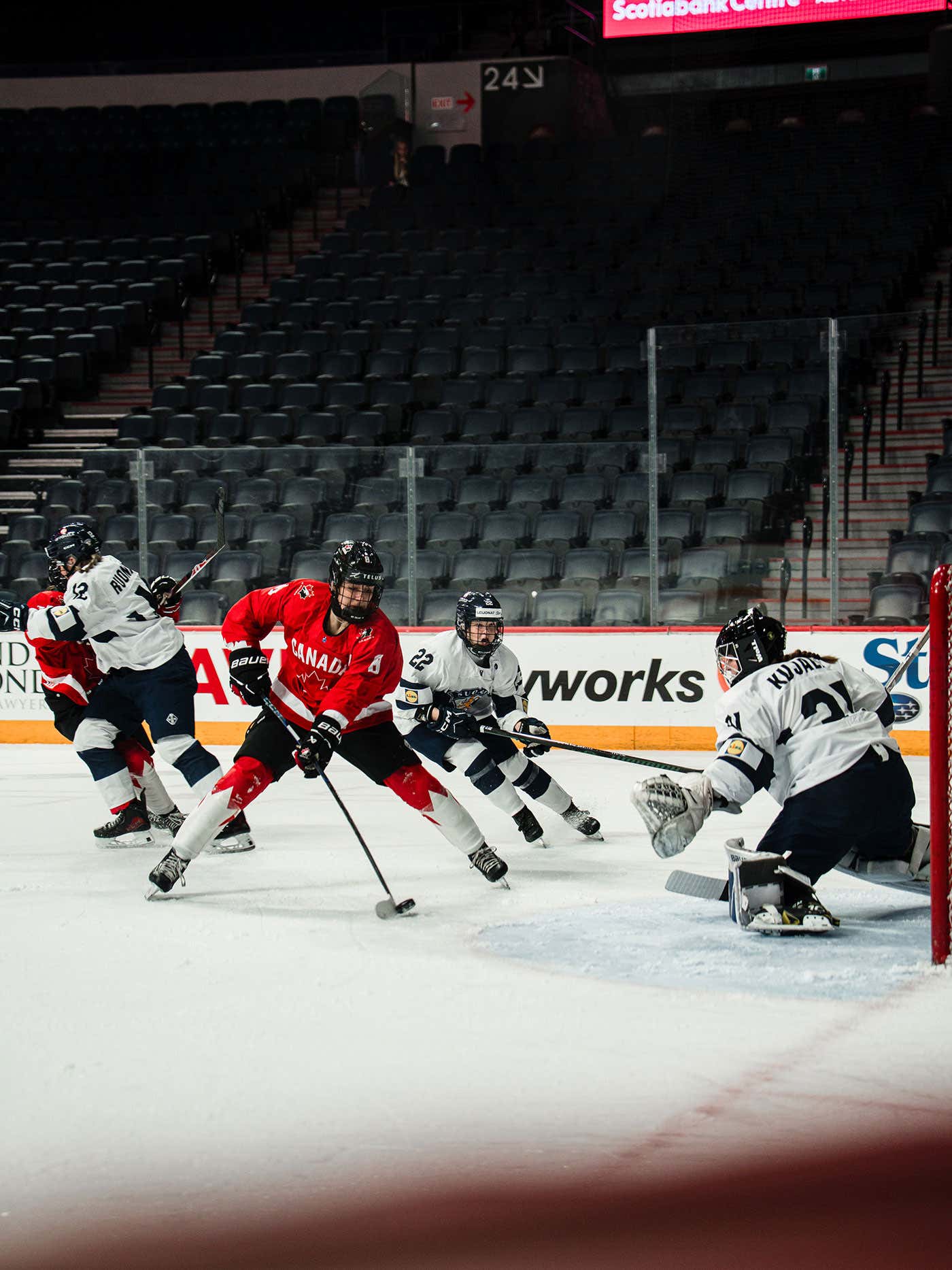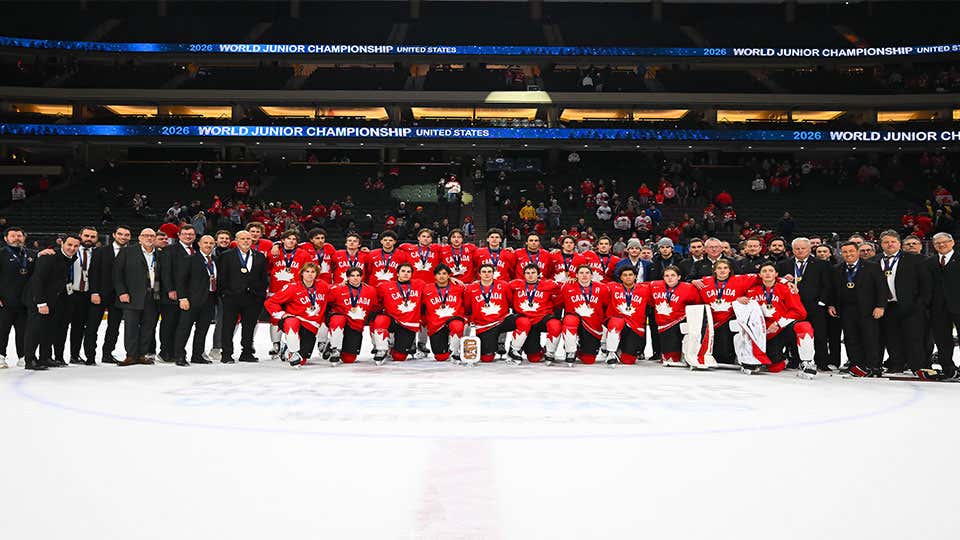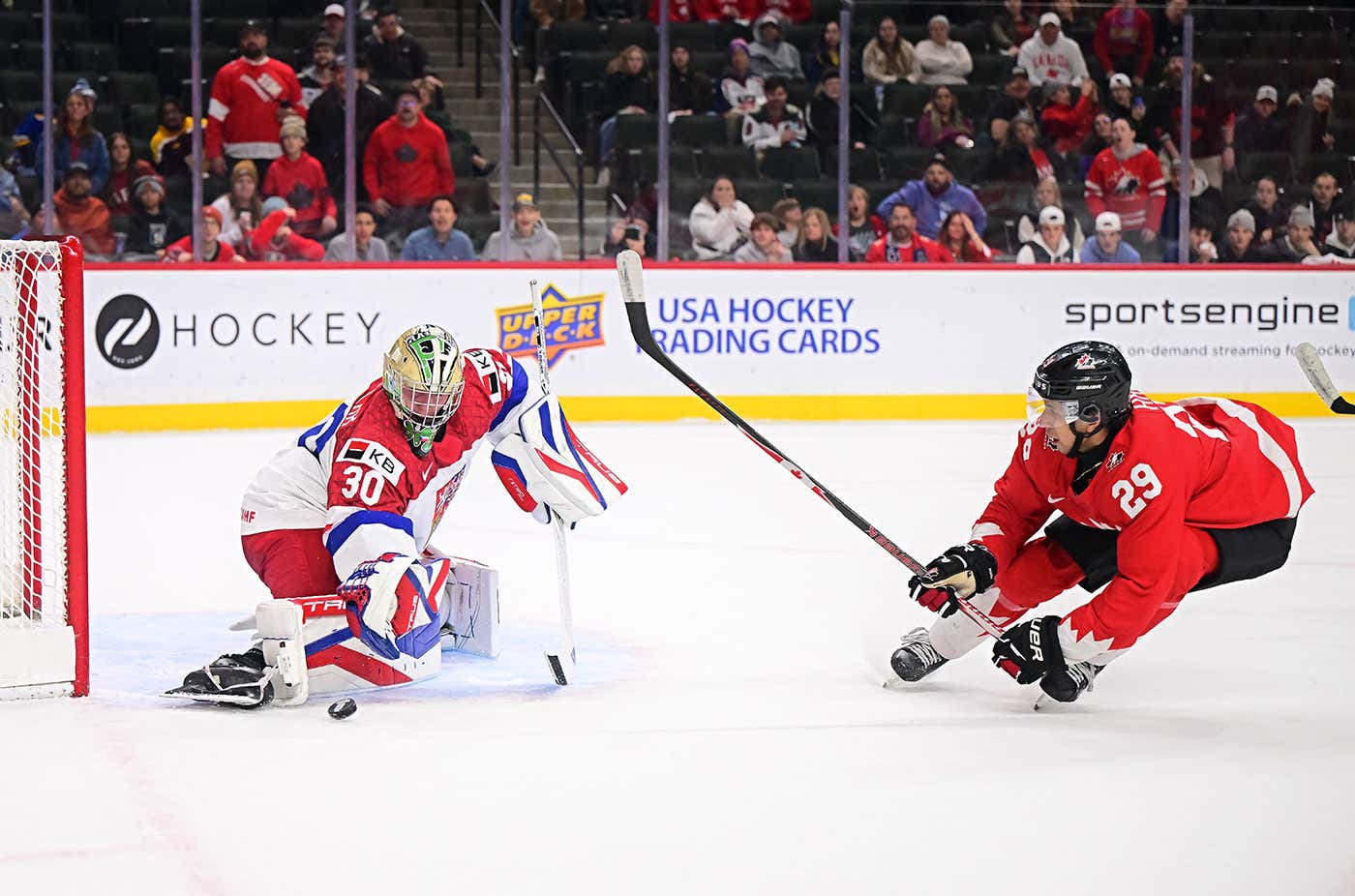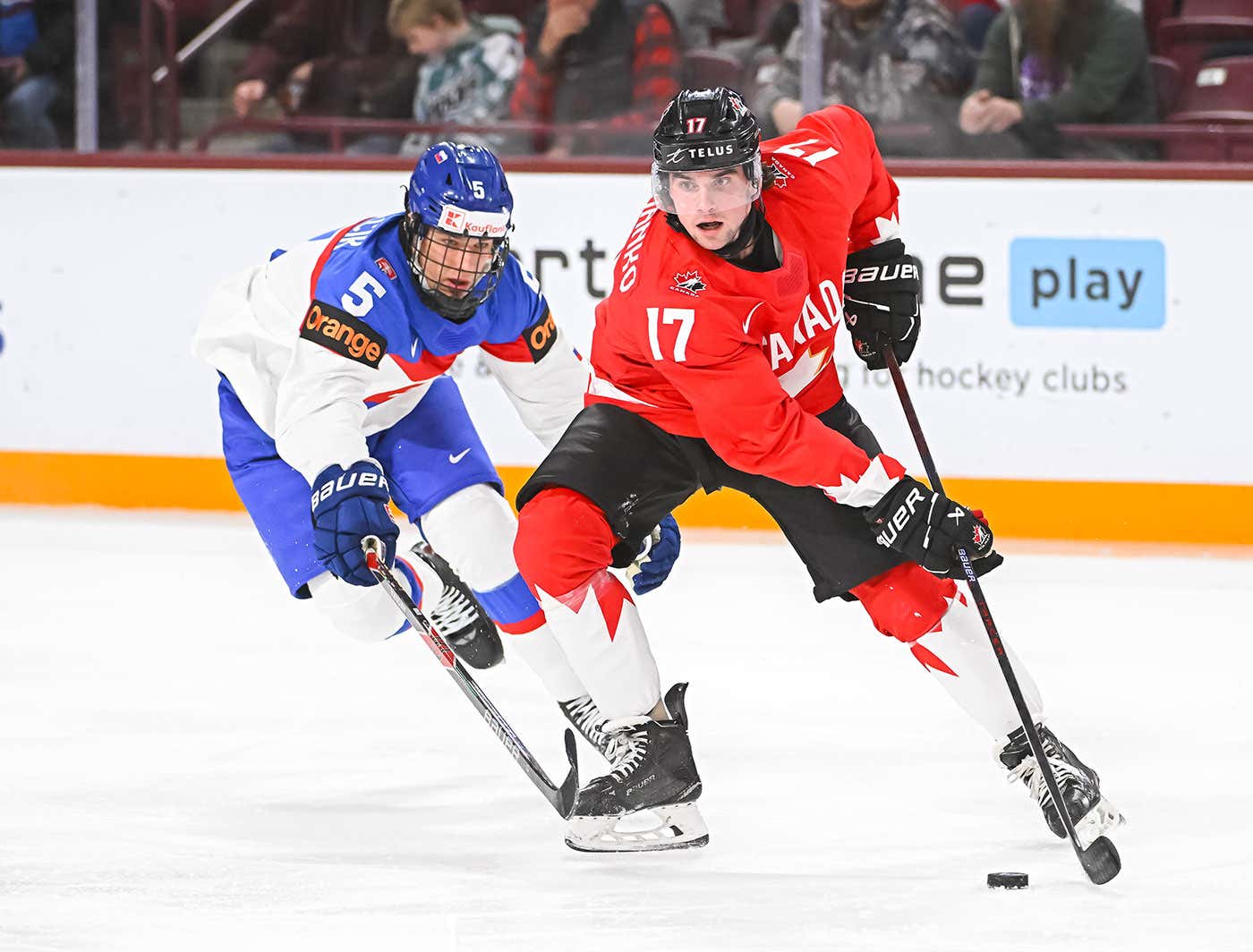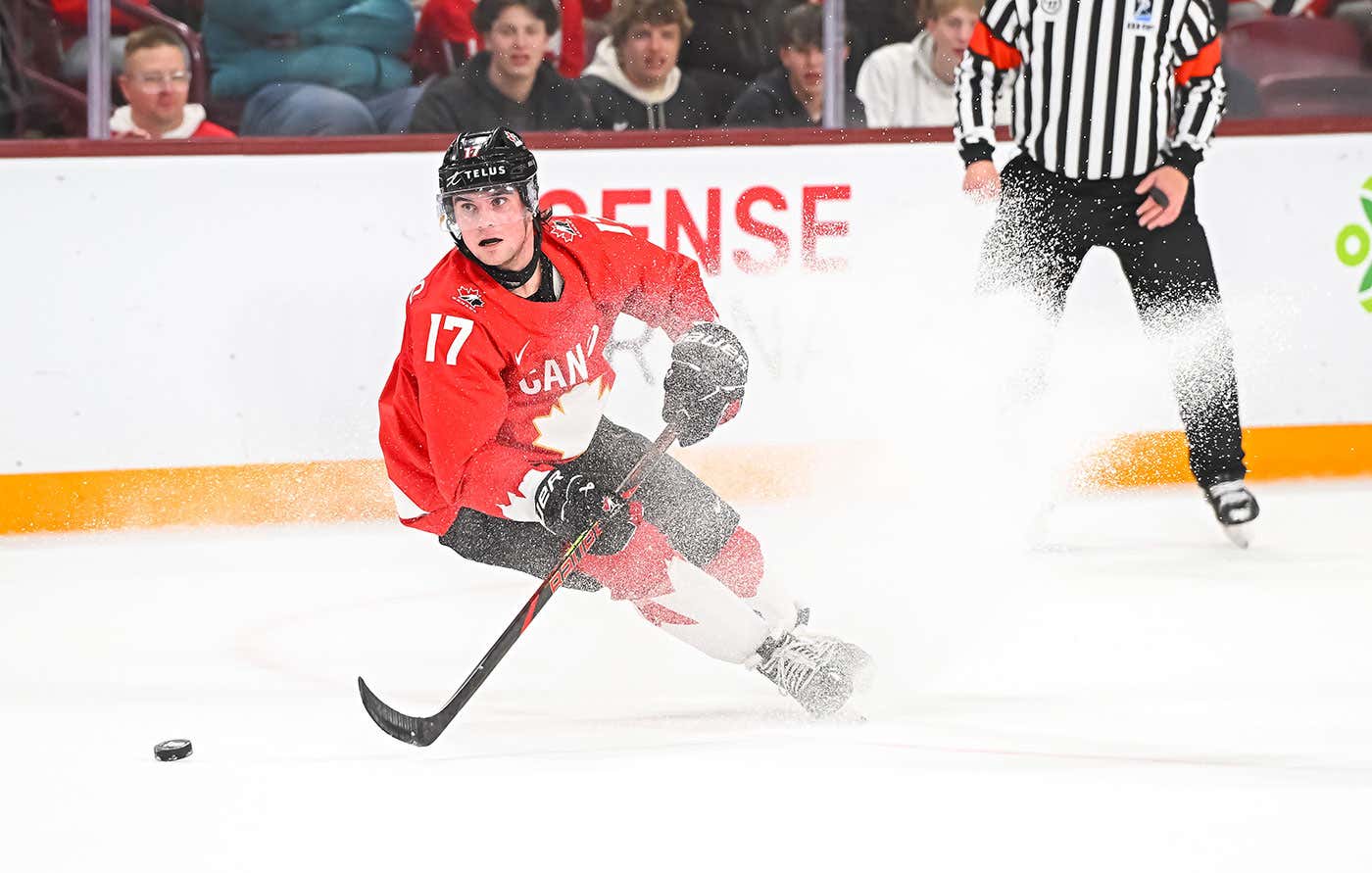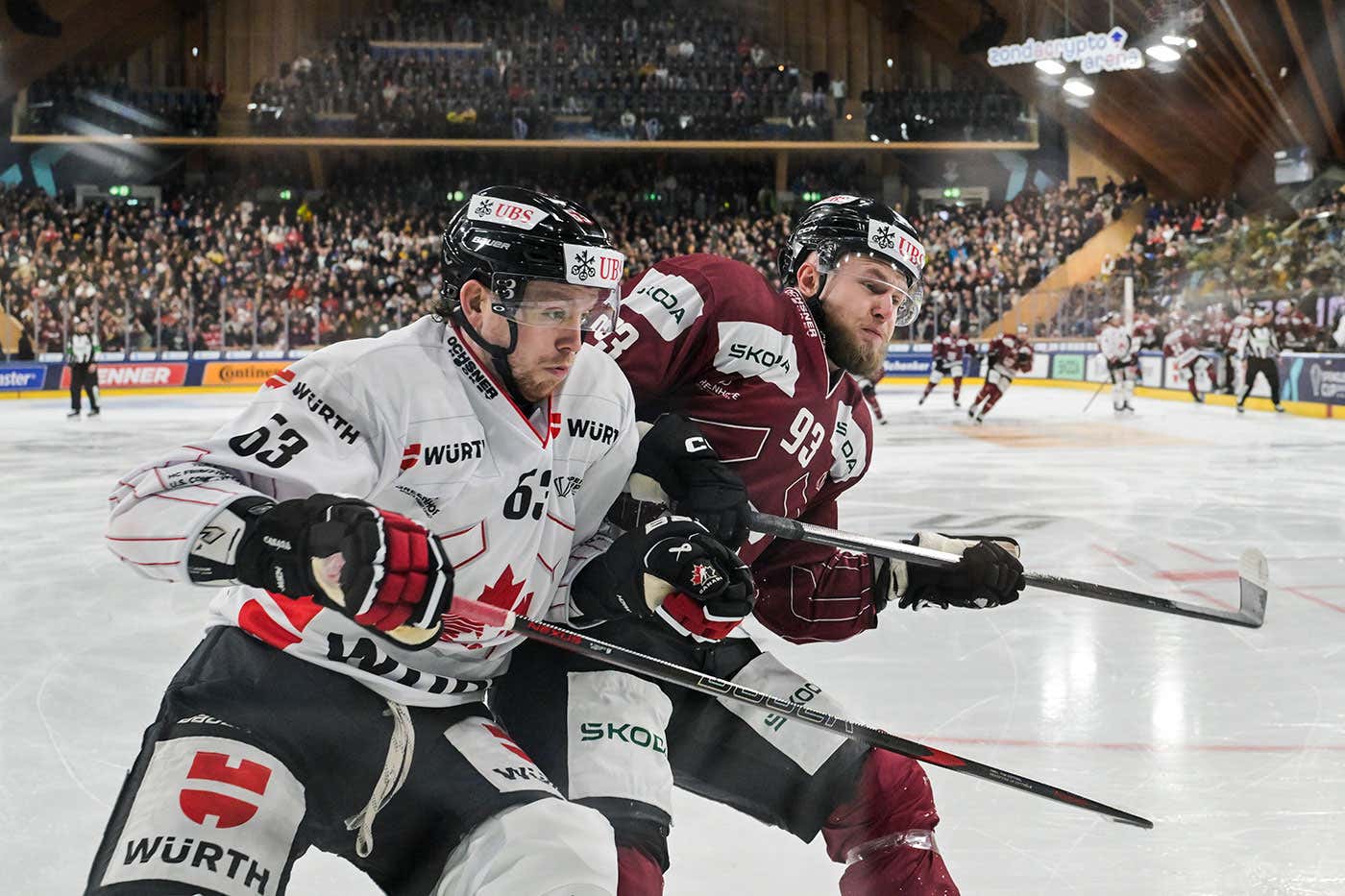
Schedule
Team Canada (Men)
2026 Olympic Winter Games | Feb. 11-22, 2026
IIHF U18 Men’s World Championship | Apr. 22 - May 2, 2026
IIHF World Championship | May 15-31, 2026
U17 World Challenge | Nov 2-8, 2025
Junior A World Challenge | Dec. 7-13, 2025
Spengler Cup | Dec. 26-31, 2025
IIHF World Junior Championship | Dec. 26, 2025 - Jan. 5, 2026
Search
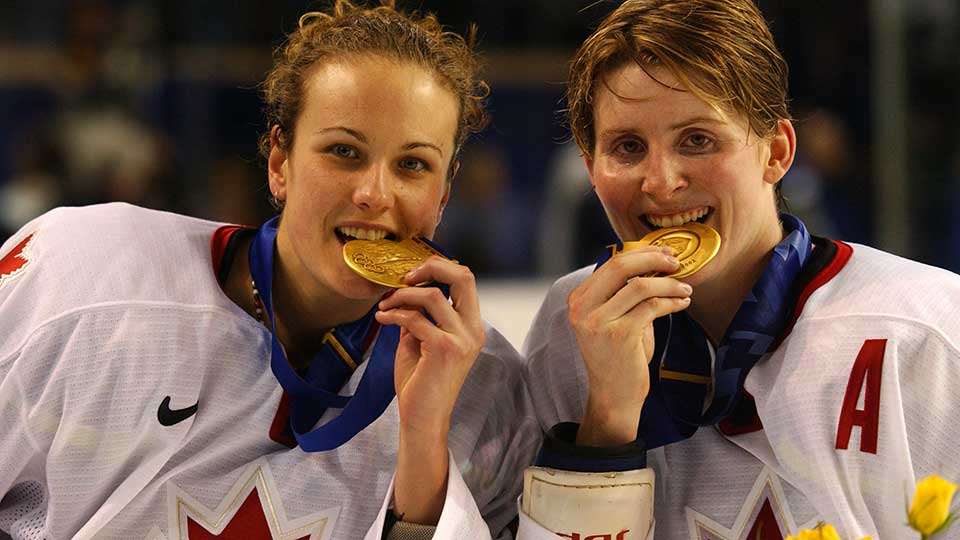
Today in Olympic History: February 21
Benn scores semifinal winner, Brodeur stands tall, and Canada wins historic women’s gold in Salt Lake City

2002 – CANADA 3, UNITED STATES 2 Canada overcame a partisan crowd and some suspect officiating to defeat the United States 3-2 and capture its first women’s Olympic gold medal, and the country’s first in hockey in 50 years.
The Canadians had lost eight straight to their American rivals, but defenceman Geraldine Heaney says the team wasn’t worried about the streak. “You learn a lot more from losing, and it’s just how you deal with and learn from your mistakes,” she says. “That helped us prepare for that final game because at the end of the day nobody cares about those other games.”
Canada jumped out to an early lead when Caroline Ouellette fired home a Cherie Piper rebound only 1:45 into the game.
The story then became more about the skaters wearing the whistles than the ones wearing the jerseys. The American referee called eight straight penalties on Canada – “She might as well have worn a U.S. jersey,” says Heaney – but the team surrendered only one power play goal.
Killing all those penalties – Canada would be called for 13 in the game; the U.S., six – shifted the momentum. “The Americans were starting to lose confidence because they couldn’t capitalize with the extra man,” says Heaney. “It had a snowball effect – we just kept building and getting better.”
Two minutes after the U.S. tied things up in the second, Hayley Wickenheiser pounced on a rebound to restore the team’s one-goal lead.
And as time all but expired on the period, Jayna Hefford corralled a bouncing puck and skated in alone, sneaking the puck by U.S. goaltender Sara DeCosta to put her team up by two with one second left on the clock.
With less than four minutes left in the game, the U.S. would get back to within one, but no closer.
The win capped an amazing career for Heaney, who in November 2013 was inducted to the Hockey Hall of Fame. “I knew it would be my last game,” she says. “It was the best way I could retire from the National Women’s Team. I had seven world championships, but winning the Olympic gold, that was the one that was missing for me.”
OTHER GAMES
1952 – Canada defeated Switzerland 11-2 behind three goals from Frank Sullivan and two goals each from Billy Gibson and David Miller.
1992 – Curt Giles scored four minutes into the third period and Fabian Joseph added an insurance marker with just over two minutes left in the game as Canada beat Czechoslovakia 4-2. Dave Hansen and Dave Archibald had the other two goals in Canada’s semifinal victory.
1994 – Corey Hirsch turned aside 34 shots as Canada won a back-and-forth affair over Sweden, 3-2. Chris Kontos, Todd Hlushko and Petr Nedved had the goals for Canada.
1998 – Finland’s power play goal 17 seconds into the third period proved to be the game-winner as it captured the bronze medal with a 3-2 win over Canada. Canada outshot Finland 35-14, but only Rod Brind’Amour and Brendan Shanahan found the back of the net.
2006 – Brad Richards, Martin St-Louis and Chris Pronger staked Canada to a three-goal lead after one period and Martin Brodeur stole the show the rest of the way as Canada defeated the Czech Republic 3-2. The Czechs outshot the Canadians 33-16.
2010 – With its 5-3 victory, the United States defeated Canada in Olympic play for the first time since 1960. Eric Staal, Dany Heatley and Sidney Crosby scored for Canada, which outshot the U.S. 45-22.
2014 – Jamie Benn scored the lone goal early in the second period and Carey Price posted a 31-save shutout as Canada blanked the United States 1-0 to advance to the gold medal game for the second-consecutive Olympics.
For more information: |
- <
- >

















